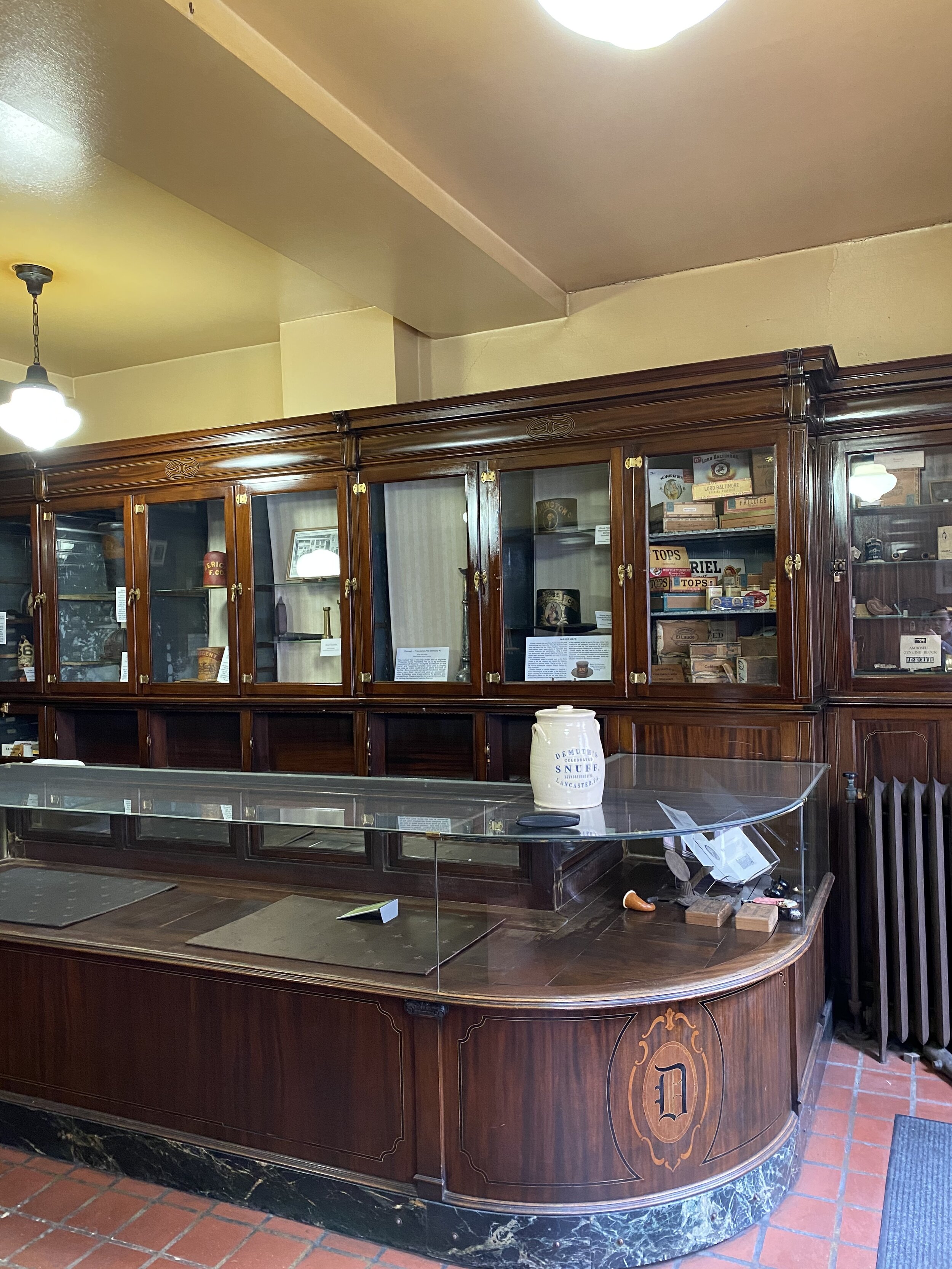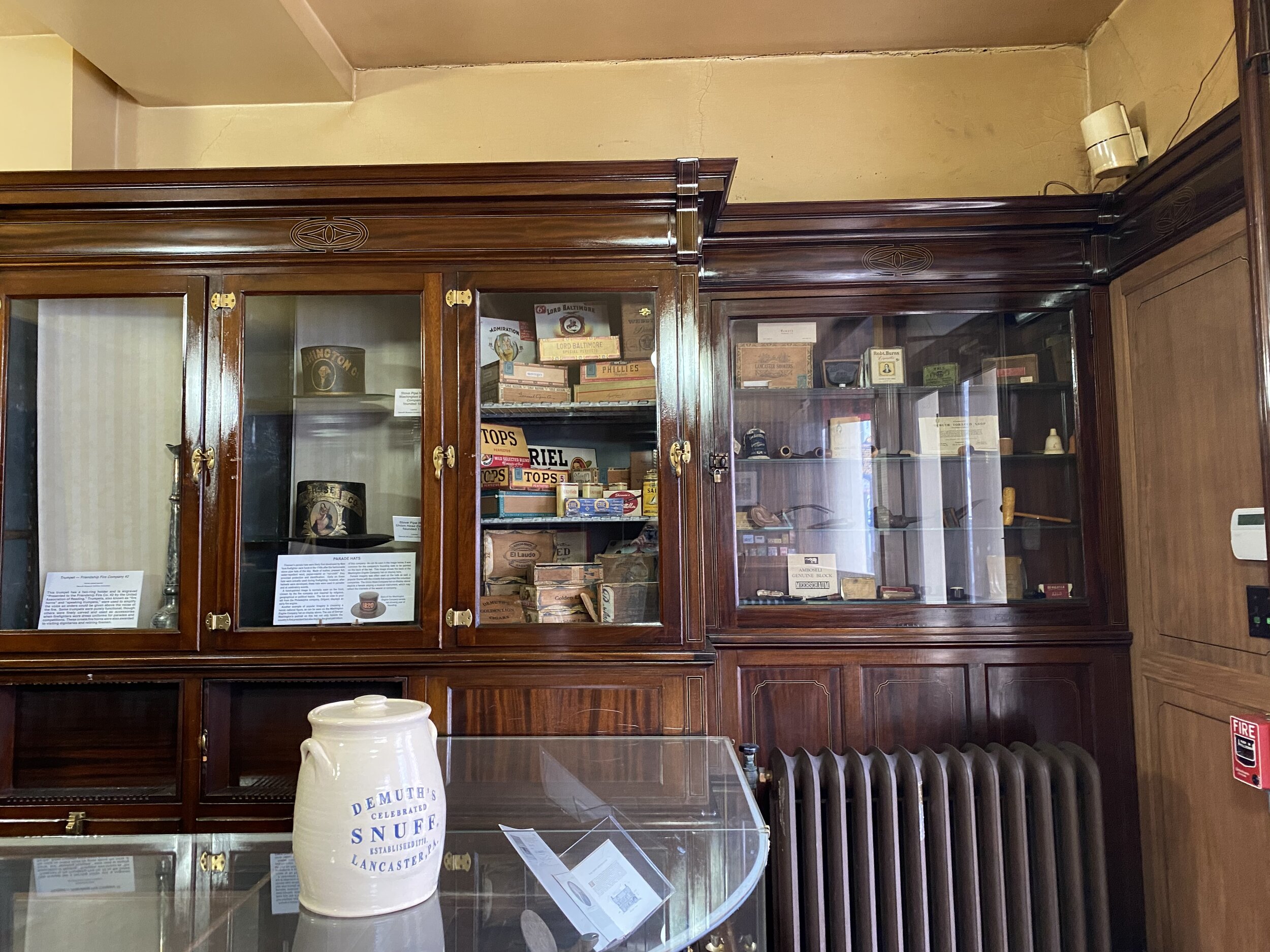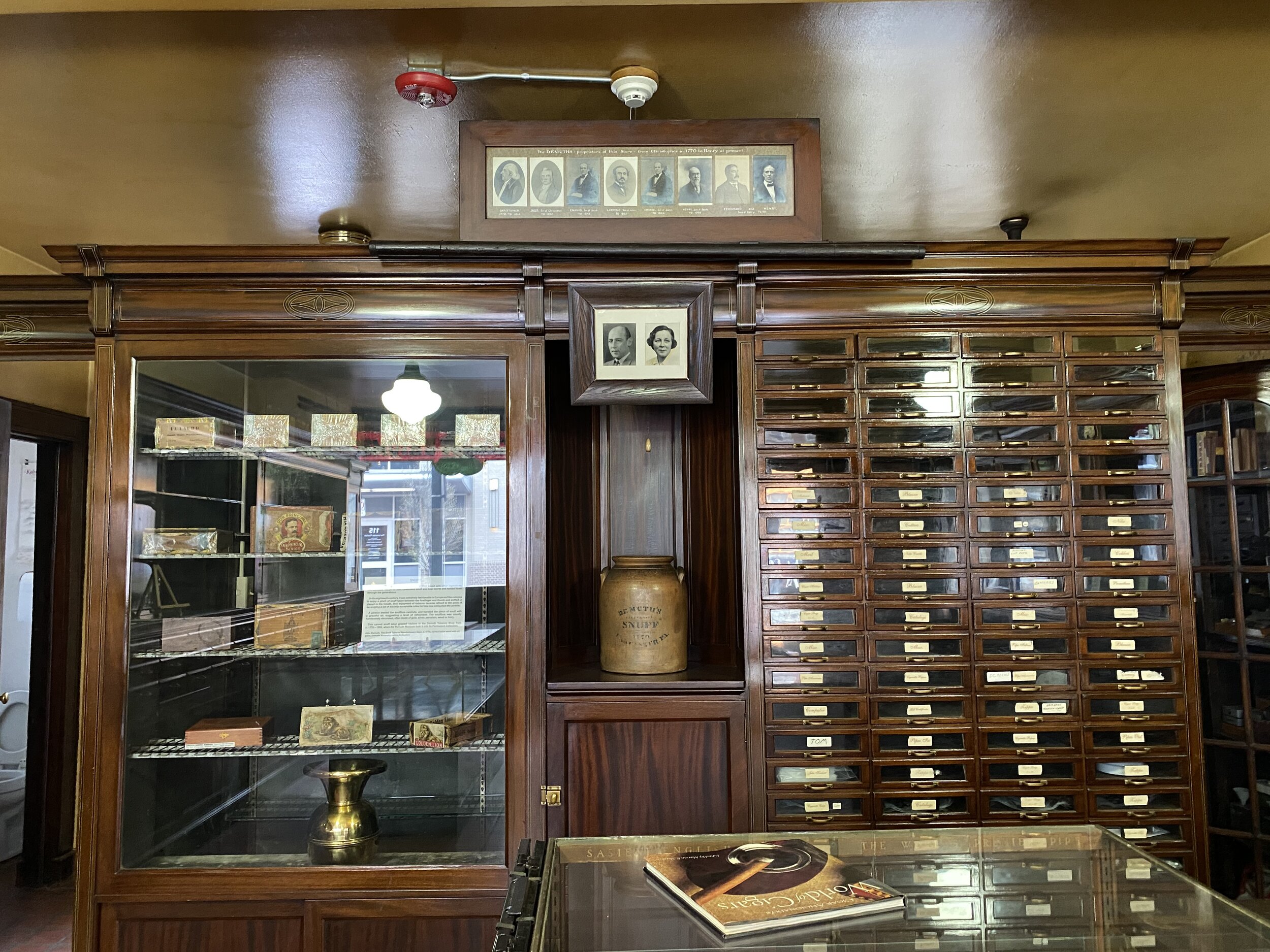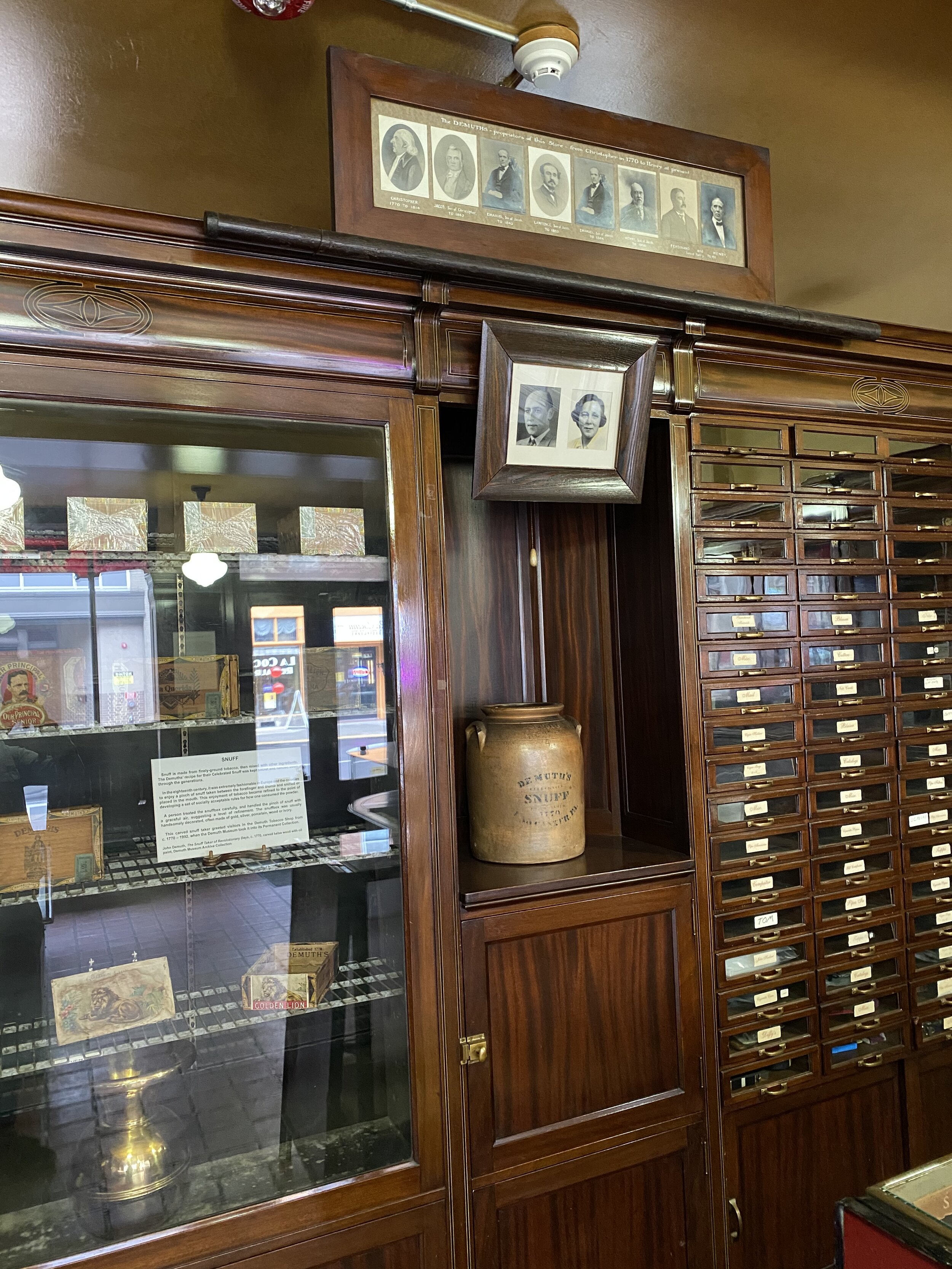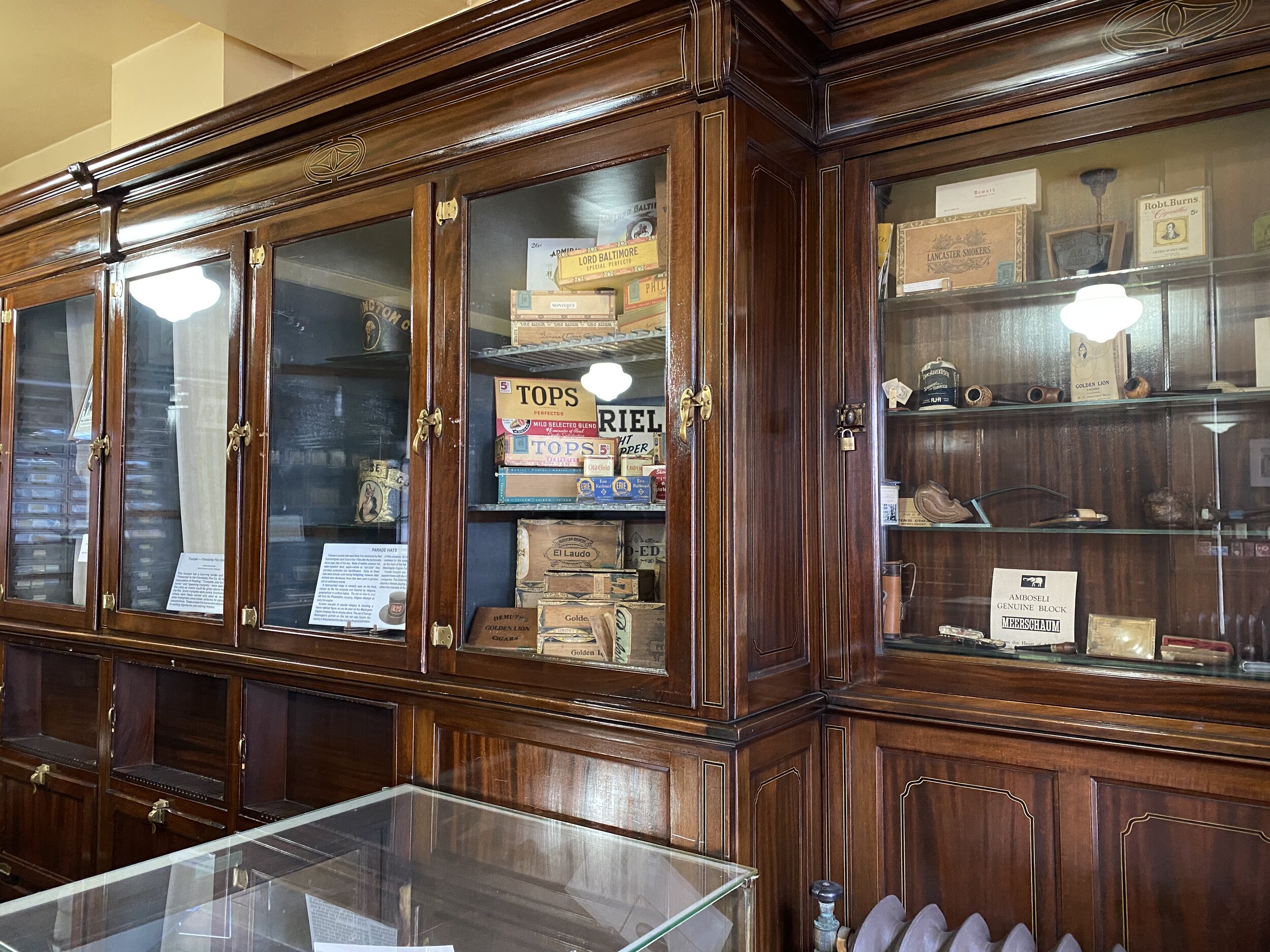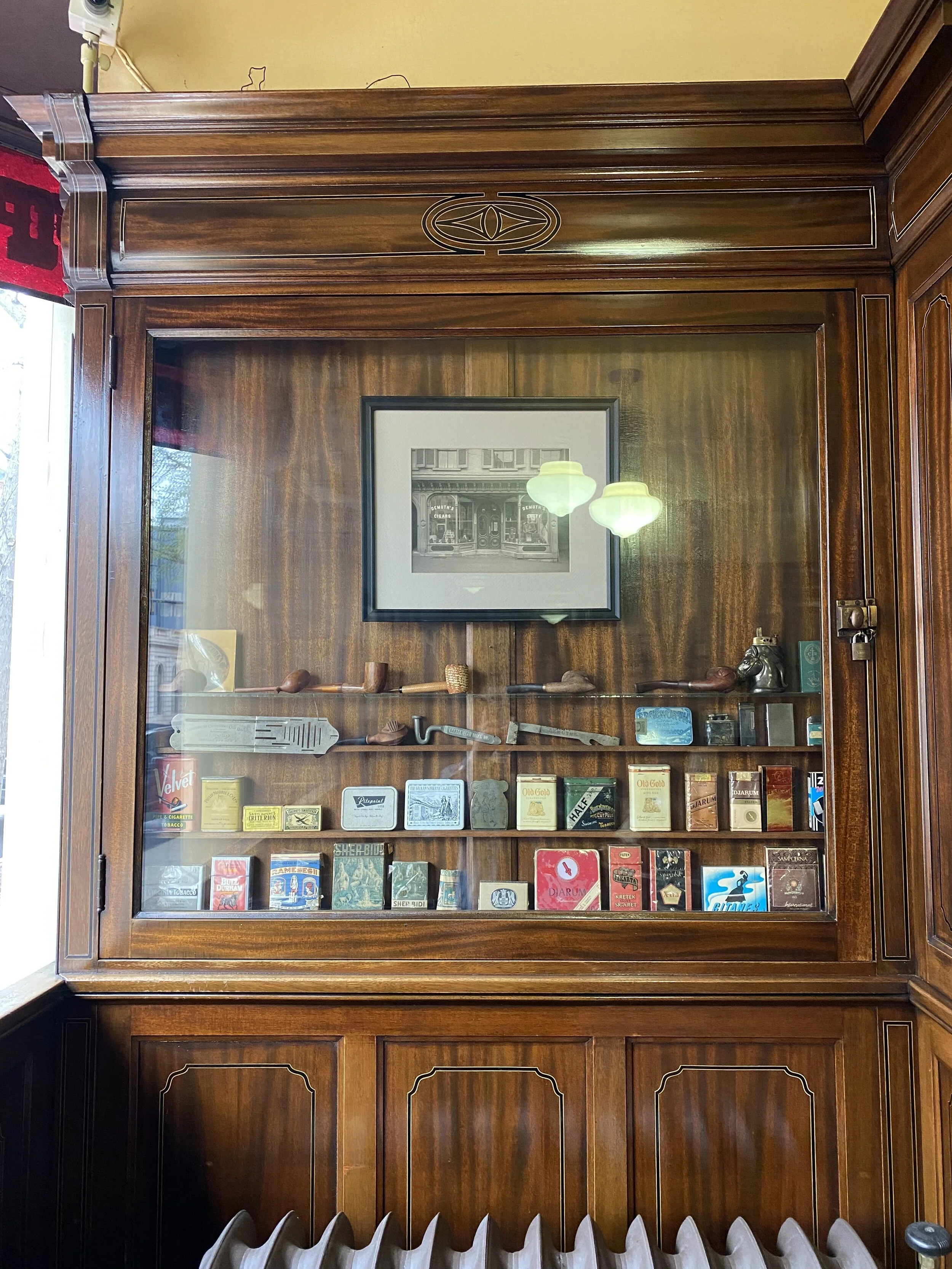Demuth Tobacco Shop
Christopher Demuth and Robert Hartaffle ran the shop together until 1782 when Robert and his son both tragically died. Demuth took over the business and in 1789 bought the property for £450.
The shop was at a great location on East King Street which was the main route to Philadelphia to the east and to the Susquehanna River to the west. It was a block away from the main square in town and next door to the William Pitt, Earl of Chatham, Tavern - the current location of the Demuth Museum.
The shop stayed in the family for the next 227 years, being passed from father to son. Christopher to his son Jacob, to Jacob’s son Emmanuel, to Emmanuel’s brother Lawrence, Back to Emmanuel, then to Emmanuel and Lawrence’s brother, Henry Charles Demuth (Charles’ Grandfather). In 1906, the business passed from Demuth’s Grandfather to his Father Ferdinand and his Uncle Harry. Ferdinand ran the Tobacco Shop while Harry managed the snuff and cigar factory on E. Mifflin Street. When Demuth’s father passed away, his Brother Harry took over the business. Harry passed the business to his son Christopher, and when Christopher passed away, his wife Dorothea (Dot) ran the shop until she sold the business. The shop continued to run under the name Demuth’s Tobacco until 2010 before closing to the public. It was the oldest tobacco shop in the United States.
Ferdinand Demuth in the Demuth Tobacco Shop, Demuth Museum Archives
Christopher Demuth at the Demuth Tobacco Shop, 1937, Courtesy of Lancaster History
Demuth’s was more than just a place to buy tobacco. Like restaurants, bars, and barber shops, it was a meeting place where people gathered to share the latest news in the community. Its close proximity to the courthouse meant a steady stream of influential judges and lawyers visited. Some notable patrons of the Demuth Tobacco shop include General Edward Hand (General to George Washington), Jasper Yeats (patriot and state Supreme Court Justice), and James Buchanan (the 15th President of the United States).
Demuth sold cigars, chewing tobacco, pipes, and other tobacco-related items, but his main product was a coarse variety of snuff known as “rappee.” Jacob Demuth’s probate inventory included oil of roses, lavender, lemon, and bergamot, all of which could have been used to flavor snuff.
In the early days, the Demuth’s often sold snuff on credit or for needed materials. For example snuff was traded for bushels of oats, necessary for feeding the animals powering the mill. The growing success of Demuth’s business is evident in the quantity of tobacco purchased from his supplier. From 1803 to 1814, he purchased an average of 17,140 pounds of tobacco each year.
The Demuth brand of cigars were the “Golden Lion.” The door to 116 E. King Street, the residence of Charles’ Grandparents, and later his Aunt and Uncle and cousins, is painted gold with a lion door knocker.
Snuff Taker
A wooden carved figure of a man in colonial dress with a tobacco leaf in one hand and a snuffbox in the other stood in front of the shop as a form of advertisement. Carved and painted by Johannes Demuth (1771-?), son of Christopher Demuth, this statue was used rather than print marketing.
It wasn’t until Jacob Demuth took over the shop that it was advertised in the Lancaster Journal. The snuff taker was on display in the Tobacco Shop until the late 20th century and remains in the Demuth Museum’s permanent collection.
Demuth’s Snuff Jar & Lid, Demuth Museum Archives
The Snuff Taker, Demuth Museum Archives
